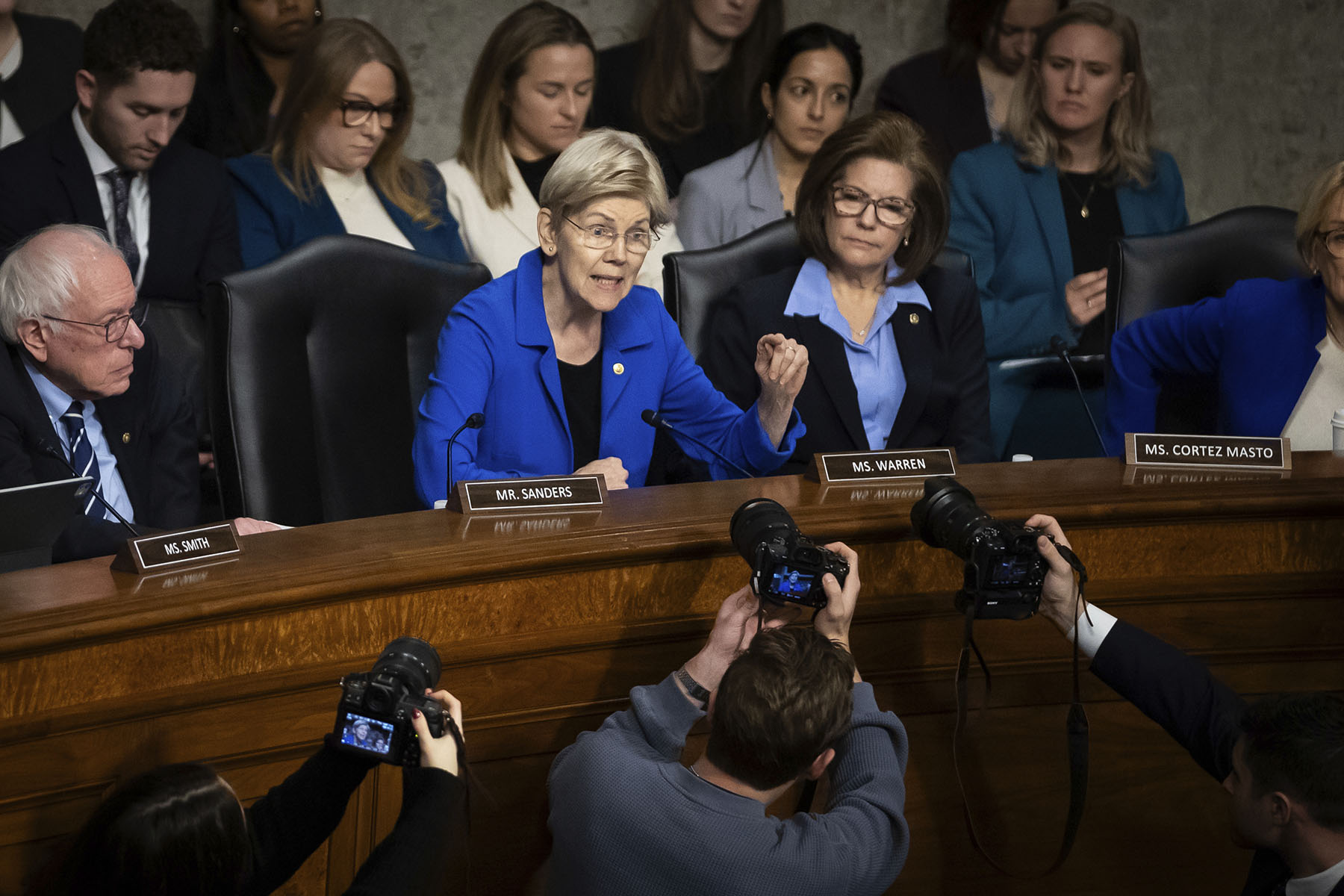Democratic lawmakers are pushing for the federal government to better regulate anti-abortion centers, facilities that seek to dissuade people from terminating their pregnancies, The 19th is first to report.
The Stop Anti-Abortion Disinformation (SAD) Act will be reintroduced Thursday by Massachusetts Sen. Elizabeth Warren and Rep. Suzanne Bonamici of Oregon. The bill aims to empower the Federal Trade Commission to regulate these often religiously affiliated centers — which are not medical clinics and therefore not subject to the laws that govern health care providers. That would include being able to take disciplinary action, including levying fines, if they provide misleading or false information about abortions, contraception or other forms of reproductive health care.
Anti-abortion centers, also referred to as crisis pregnancy centers, have come under scrutiny for giving people incorrect information about abortions, including inaccurate readings of sonograms and false claims about abortion’s physical or psychological consequences.
“Fighting back against misinformation and deceptive practices is an important tool to protect access to safe and reliable reproductive care. Reproductive rights are under attack in our country. This bill will help us push back against crisis pregnancy centers’ attempts to undermine a woman’s right to choose,” Warren said.
With the GOP in control of Congress, the bill is unlikely to go anywhere. Still, its introduction could shine a light on centers, which have become even more influential since the fall of Roe v. Wade and constitute a key component of the anti-abortion strategy post-Roe.
Many Republican lawmakers have lauded anti-abortion centers as an alternative to health care clinics that have been forced to shut down since the 2022 Supreme Court decision — including Vice President JD Vance, who highlighted those centers in his January remarks at the March for Life, the nation’s largest anti-abortion gathering.
Patients in states with abortion bans seeking basic information about their pregnancies have increasingly relied on anti-abortion centers, which, even before Roe’s overturn, vastly outnumbered abortion clinics. Many have said they were misinformed about how far along in pregnancy they were. People were told they were no longer able to receive an abortion, or that doing so would cause depression, a claim unsupported by scientific evidence. Because anti-abortion centers are not medical clinics, they are not required to protect patients’ health information as required by the Health Insurance Portability and Accountability Act — meaning someone who seeks pregnancy-related services at one could have their medical data leaked or shared with third parties.
But abortion opponents — including in Congress — have argued that these centers offer a natural source of support for people who want abortions, citing resources such as the free diaper programs and parenting classes. Most people who seek abortions are already parents, and they often say they cannot afford another child.
“Crisis pregnancy centers further their own anti-choice agenda by taking advantage of people seeking reproductive care,” Bonamici said. “Tragically, when CPCs provide false and misleading information about abortion and contraception, patients do not get necessary medical care.”
It’s unclear how President Donald Trump intends to handle federal abortion restrictions. In his previous term, his administration changed the rules of the federal Title X program — which provides money to family planning clinics that serve low-income people — so that anti-abortion centers could qualify, which the Biden administration undid. Trump has not made the change back, despite issuing other orders meant to restrict access to abortion.
In the past, Republican lawmakers have rallied around anti-abortion centers as a more politically palatable way to limit access to reproductive health care, pushing for the federal government to fund their work. Already, anti-abortion centers have been heavily subsidized by public dollars, receiving close to $500 million in state funding since the fall of Roe v. Wade.
But this week’s likely Senate confirmation of anti-vaccine conspiracy theorist Robert F. Kennedy Jr. to head the Department of Health and Human Services suggests the executive branch could take a more aggressive anti-abortion stance. Warren has emerged as a sharp critic of Kennedy, arguing in remarks Wednesday night: “We cannot trust Robert Kennedy to make health care decisions that will affect every person in this country.”
In his confirmation hearings, Kennedy suggested openness to using the health department to restrict abortion, potentially by initiating a safety review of mifepristone — the medication used in most abortions, and which a vast body of research shows is safe and effective. He also indicated that Trump supported some kind of national restriction.






